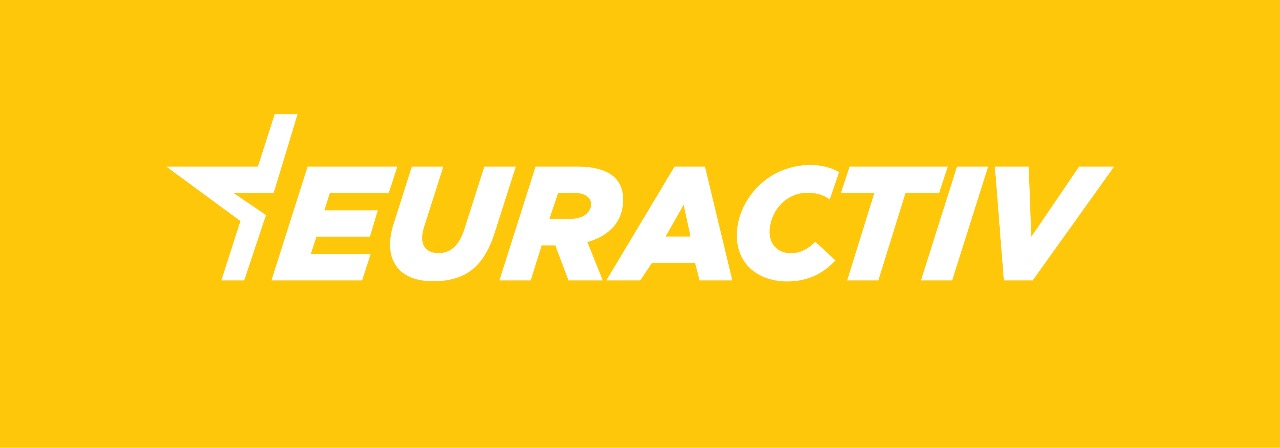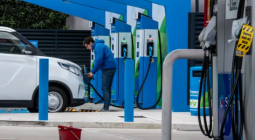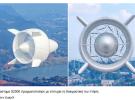EU-backed green certification scheme for raw materials launched, in world first
Germany’s TÜV Nord Group is launching the world’s “first and only comprehensive certification” scheme for critical raw materials along the entire value chain – from exploration to extraction and processing, up to the final product.
The “CERA 4in1” scheme, partly funded by the EU via EIT Raw Materials, ensures greater transparency and traceability along the raw materials supply chain, as well as compliance with Environmental, Social and Governance (ESG) standards.
The scheme, launched on Wednesday (31 January), supports production facilities in the areas of mining, processing, smelting, and refining of minerals in meeting ESG standards for green technologies like electric car batteries and wind turbines, which use a wide range of raw materials.
The four-step scheme includes separate integrated standards – the Readiness Standard (CRS), the Performance Standard (CPS), the Chain of Custody Standard (CCS), and the Final Product Standard (CFS).
The main advantage, according to TÜV NORD, is that it targets all kinds of minerals, all around the world, and can be applied to companies of all sizes.
“Sustainability certifications in the raw materials sector are extremely complex and often vary significantly,” Sandra Gerhartz, managing director of TÜV NORD CERT explained. “To enable transparency all the way to the end user, we need a smart and streamlined certification process to reliably measure ESG compliance and certify accordingly,” she said in a statement.
“Today’s launch of the CPS is the beginning of a transition in the raw materials sector which will create sustainable and secure supply chains for the future,” the statement said.
The CERA 4in1 scheme is designed to help manufacturers comply with EU standards such as the battery regulation, adopted in July last year, which introduced new mandatory labelling and traceability requirements for raw materials used in car batteries as of 2026.
The battery regulation also introduced an electronic “battery passport” to make this information accessible through a QR code that will become mandatory as of 2027.
Digital product passports are becoming the norm across all kinds of consumer goods in Europe as part of the EU’s Ecodesign for Sustainable Products Regulation (ESPR) which was recently approved by EU legislators.
Limitations
Campaigners welcomed the launch of the CERA certification scheme but also pointed to limitations regarding the enforcement of social and human rights on the ground.
“Any improvement to increase transparency, traceability and ESG performance is of course welcomed,” said Robin Roels from the European Environmental Bureau (EEB).
However, certification schemes need to have a multi-stakeholder approach, including “a veto right” for trade unions and local populations involved in the governance of the scheme, he pointed out.
“There also need to be clear red lines on issues related to the environment and human rights as we know that certification standards are very much unable to punish wrongdoing,” Roels told Euractiv.
“While we welcome any enhancement that promotes transparency, traceability, and ESG performance, it’s crucial to remember that certifications are a tool, not a proxy as they are unable to hold companies to account,” he said.
TÜV NORD admitted that voluntary certification schemes cannot provide a 100% guarantee that social and human rights of local populations will be observed on the ground over the long run.
But it does, however, come pretty close, the German group said.
“We actually look into the complete process and go on location” to see what’s happening and “talk to people to see if the standards are being met,” Gerhatz told Euractiv. “And this also includes topics like human rights, labour, and all these things that are important to the company. We check on that.”
For instance, a pilot project led by TÜV NORD in a cobalt mine in the Congo basin involved local stakeholders extensively, said Andreas Hucke, raw materials expert at TUV NORD CERT.
“In this pilot we did in Africa, we talked with the unions, we went to the villages around the mining area and talked with the chiefs of villages and asked local independent organisations” as part of the audit process, which also included experts from South Africa, Hucke told Euractiv.
The audit also looked into processes that are being put in place to ensure compliance with environmental and social rights are going to be met in the long term, and not just to meet the audit’s requirements.
“There is never a 100% guarantee,” Gerhatz admitted. “But we come as close as possible.”
A holistic system
The EU-backed CERA 4in1 project consortium brings together leading European raw materials research institutions, academia, engineering and consulting service providers.
Its advisory board includes the European Bank for Reconstruction and Development (EBRD), trade association Euromines, the European Commission’s Joint Research Centre, the United Nations Economic Commission for Europe (ECE), the University of Southern Denmark, as well as private companies Siemens and automaker Volkswagen.
Eventually, TÜV NORD CERT says it intends to create “a holistic system” for certification that will also be visible to the end consumer, not just companies involved in the raw materials supply chain.
“We want to create a label in the future where the customer can see that these raw materials, which are included in this product, are coming from a responsible mining plant,” Hucke said.
Green NGOs, meanwhile, said they will remain vigilant about the implementation of these voluntary certification schemes “to ensure they are not used to greenwash the industry,” Roels told Euractiv.
Cover photo: Mining activity in Indonesia - July 10, 2023. [Photo credit: Masmikha / Shutterstock]






